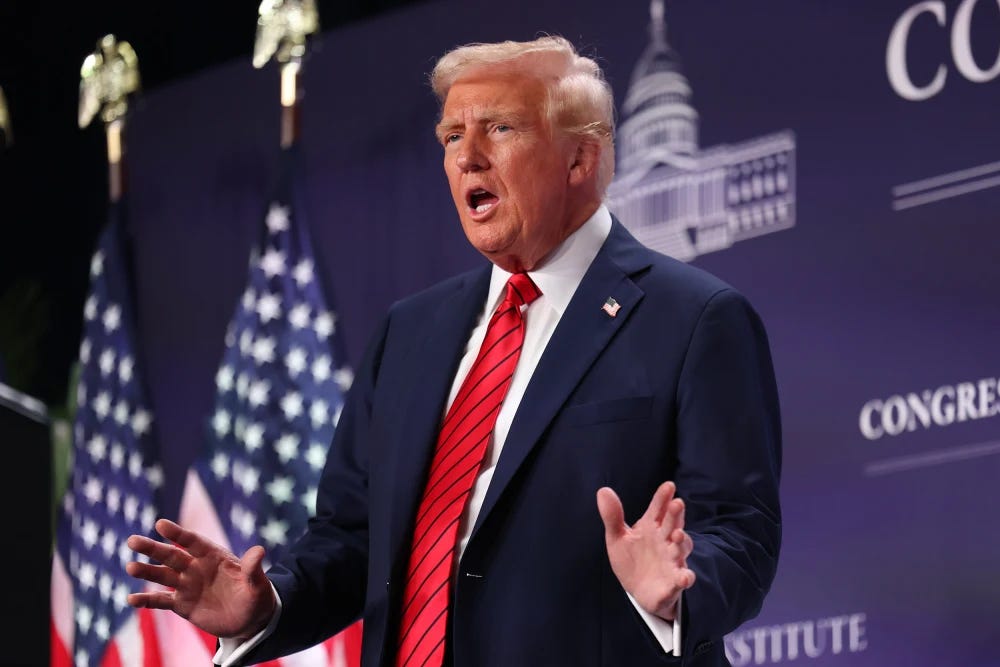Trump Proposes Sending Repeat Offenders to Foreign Prisons as Cost-Saving Strategy
Miami, FL — Former President Donald Trump has suggested an unconventional approach to dealing with repeat criminal offenders in the United States: transferring them to foreign prisons for detention at
“If they’ve been arrested numerous times, they are repeat offenders by many counts—I want them out of our country,” Trump stated. “We’re looking to get approval to send them elsewhere, where they can be held for a small fee, rather than spending massive amounts of money on U.S. jails and private prisons that charge us a fortune.”
While the former president did not provide specifics on how such a plan would be implemented or which countries would be involved, he acknowledged that it would require formal approval. The idea appears separate from his ongoing push to deport undocumented migrants with criminal records, an effort that has been a cornerstone of his policy initiatives.
Historically, the notion of exiling criminals is not unprecedented. In the 18th century, Britain transported convicts to the American colonies and later to Australia as a form of penal resettlement. Trump’s remarks suggest a modern iteration of that concept, with the goal of reducing the financial burden on the U.S. prison system.
His comments also come as the newly formed Department of Government Efficiency, headed by entrepreneur Elon Musk, has claimed to have saved over $560 million through budget cuts and program eliminations. The proposal to relocate prisoners abroad aligns with broader efforts to trim government spending.
Trump’s remarks coincide with intensified deportation policies. Since assuming office a week ago, he has ramped up removal efforts, even pressuring the Colombian government to accept deportees or face trade sanctions. “We’re moving quickly and unapologetically,” he asserted. “Some of these criminals have been arrested 30, 40, even 42 times for violent offenses. If we remove them, let’s see how they like it.”
He cited cases of individuals committing “heinous crimes,” including assaulting elderly citizens, shoving people onto subway tracks, and attacking others with blunt objects. Trump argued that sending these offenders abroad could serve as a deterrent to crime in the U.S.
“We need to take action,” he said. “Let them live elsewhere for a while and see how they fare.”
While Trump’s idea has stirred significant debate, it remains unclear how feasible it would be under existing legal frameworks or whether any foreign governments would agree to such arrangements. Critics argue that outsourcing incarceration could present human rights challenges and diplomatic complications, while supporters see it as an innovative way to reduce prison costs.
As discussions on the proposal continue, its potential impact on crime rates, international relations, and the justice system remains to be seen.


